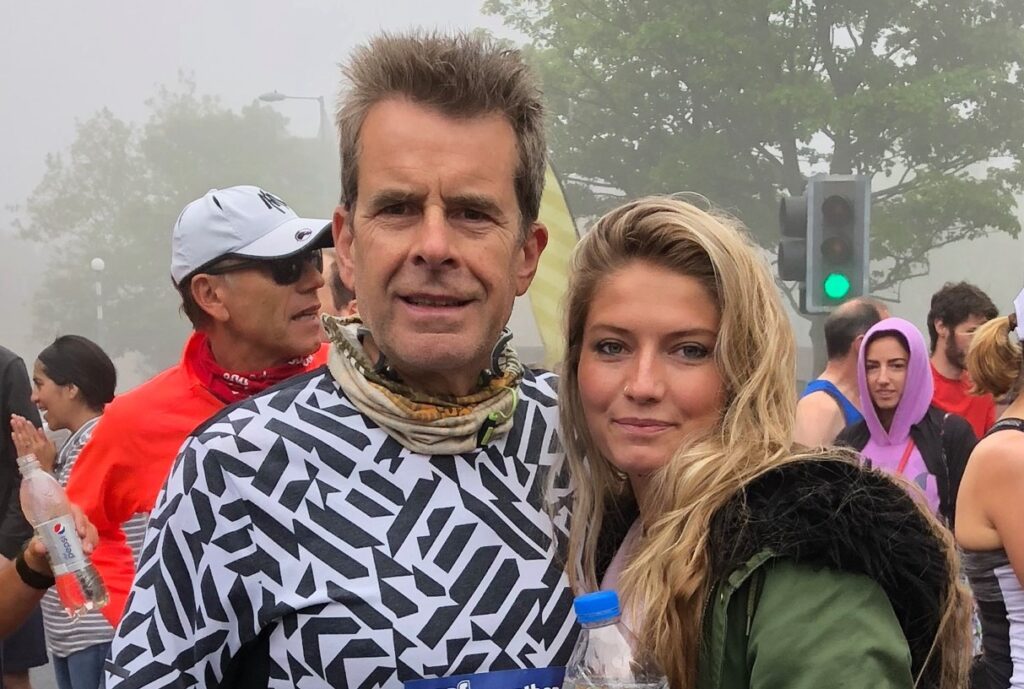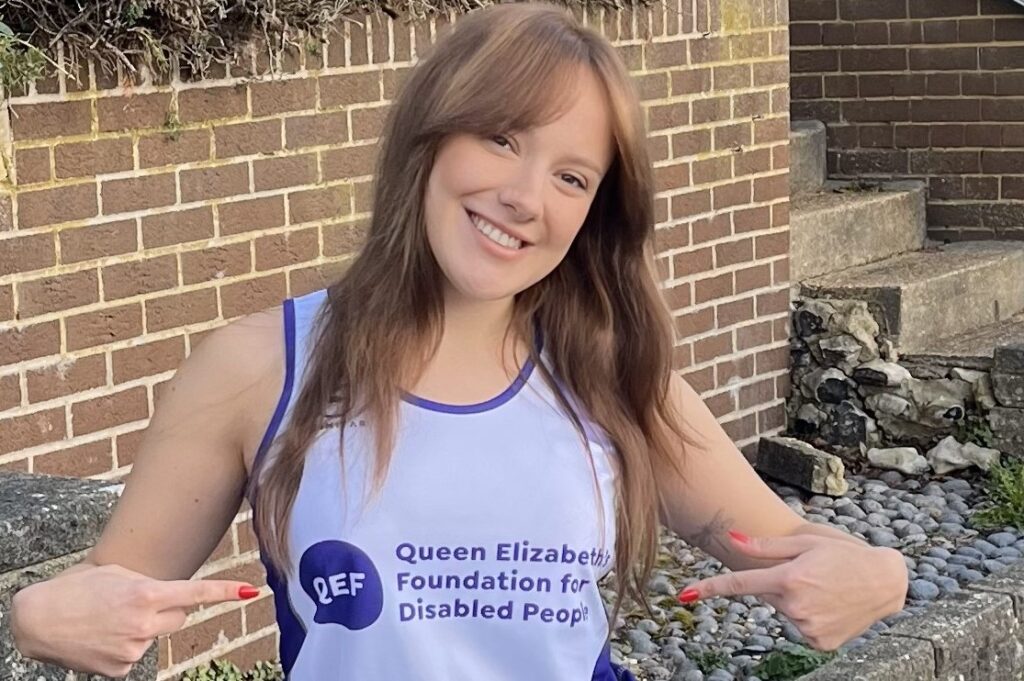International Womens’ Day 8th March 2022
How long have you been CEO at QEF?
Strangely enough, it’s been five years today. I hadn’t realised until this morning, which is great isn’t it. Five years!
I started off as a nurse, I trained in Surrey and Sussex, and I did my final training in London. I probably always knew that I was going to be a nurse from a really early age, because of the amount of times I used to fall over and hurt myself and end up in casualty.
Then I went on to work in casualty. I absolutely loved casualty, having to make very quick relationships with people. You’re either telling people the best news ever, that someone’s okay, or the worst news ever, and you have a real responsibility for that. I sort of prided myself in making those relationships. There’s also a lot of laughter and a lot of joy, and, when somebody comes in, in agony and walks out, pain free, and you just think, “yeah, I did that”. There’s a real sense of return for what you’ve done. That’s so nice.
 Did you ever see yourself being CEO of a charity?
Did you ever see yourself being CEO of a charity?
No, it was never in my mind early on. I have always been ambitious.
I quite quickly got up to the top of my nursing, but then, in those times, unless you did a management degree on top of your other one, you couldn’t go any further. So, I did a management degree when my children were one and two. That was certainly a challenge. I did my university in the evenings, we would have one day a week, day release.
I knew I wanted to do more, I originally went up in the health service, and got to Deputy CEO, but that’s when life changed for myself and my family, we lost our daughter. I think it makes you re-evaluate so much and re-evaluate what’s important to you.
So, I moved on to work for Young Epilepsy, that is what our daughter died of. It took a little while to get my head to do something positive. I stayed there for ten years as Director of Care. A lot of young people reminded me of my daughter, so sometimes it was very difficult, but on the other hand, really rewarding. I knew I felt it was the right thing for me, and for her to be doing.
I was very sad when I left there, but there’s only so far you can go in one organisation, so it was time to move on. That’s when I moved to RNIB as Director of Services covering education, social care and health. I very much got the exposure to working within learning disability and absolutely knew that I was going to stay in the charitable sector. I was there for six years and I absolutely loved it. After some changes within the organisation it just felt like it was the right time for me to move on to get a new job.
Then I knew I was capable of doing a CEO post, and the opportunity came up with QEF. So this is my first CEO post, and quite possibly my last.
Have there been any challenges as a woman in leadership?
Without a shadow of a doubt, having my first child. I think it’s about being a mum as well as being a woman.
I wanted to come back on three days a week, instead of full time. I was very happy to job share, or to have a second in command that could help and be available, I had to make so many compromises. My first offer was to drop five pay grades. I had to really fight and I was actually the first person who came back after maternity leave to their original job, so that was massive for me.
You always experience ‘mum guilt’. If they’ve got a sniffle in the morning, you think, am I going to send them to school and you feel so guilty when you think you’ve got really important meetings on or really important events at work and they need you too.
I always said I’d never let that happen to anyone else. There’s always a way.
Have you experienced any sexism in the workplace, if you’re comfortable to talk about it?
I think I’ve been asked several times, how are you going to manage your children? Would they have asked my husband that? Absolutely not. Also the fact that because I was having the baby, it was automatically assumed, I’m going to be the one looking after the children.
I do think you have to prove yourself harder
Do you think things are getting better in terms of women reaching leadership roles?
Things are very different now than when I became Senior Manager. In the teams then, there would be twenty senior staff, two or three of us that were female. That’s definitely changed.
I remember going to an architects meeting with a female colleague when we were building a new care home. There were probably 20 people in the room and we were the only two females. Even though we were the client we still felt that we had to prove our point and would think about how we acted, so I think there is quite a long way to go.
I do think you still look round at big boards, particularly finance boards, and I doubt you see that many women.
So I think the tide is turning, it’s very slow. It’s like those great big ships that turn very slowly, but it is turning. I think, we still have to prove ourselves more when we have children. I still think that that exists.
What do you think needs to be done for women to reach leadership roles?
I think the change in culture and attitude, to sort of change how things work and the timings of people’s day, you know, all those things that would make it very flexible.
I loved the fact that one good thing that’s come out of lockdown and zoom is people have been able to manage their lives a bit more flexibly. I don’t want to lose all of that. Life has got to change to enable either member of the parenting family, to work again.
I certainly think there’s probably still a pay differential. I’m hoping now we [QEF] concentrate quite hard on ours.
I do think employers shouldn’t be so prescriptive as to what you have to wear, what time we have to turn up, you know, actually how you engage on a day to day basis. So I think that’s got to change.
I think career breaks of a year shouldn’t be looked at as a negative because people see them on their CVs and say, ‘Oh, they’ve had a career break’. It’s almost, you feel obliged to say, ‘well, I had a child you know’. It’s as though there is an assumption you lose your skills in that time. Somebody used this phrase yesterday to me, and it was, ‘there’s no traffic in the extra mile’. For me, that’s what I’d like it to get to, you know, we don’t have to go the extra mile to prove that we can do the job we did before. If we want to go the extra mile, then it’s because we want to.

